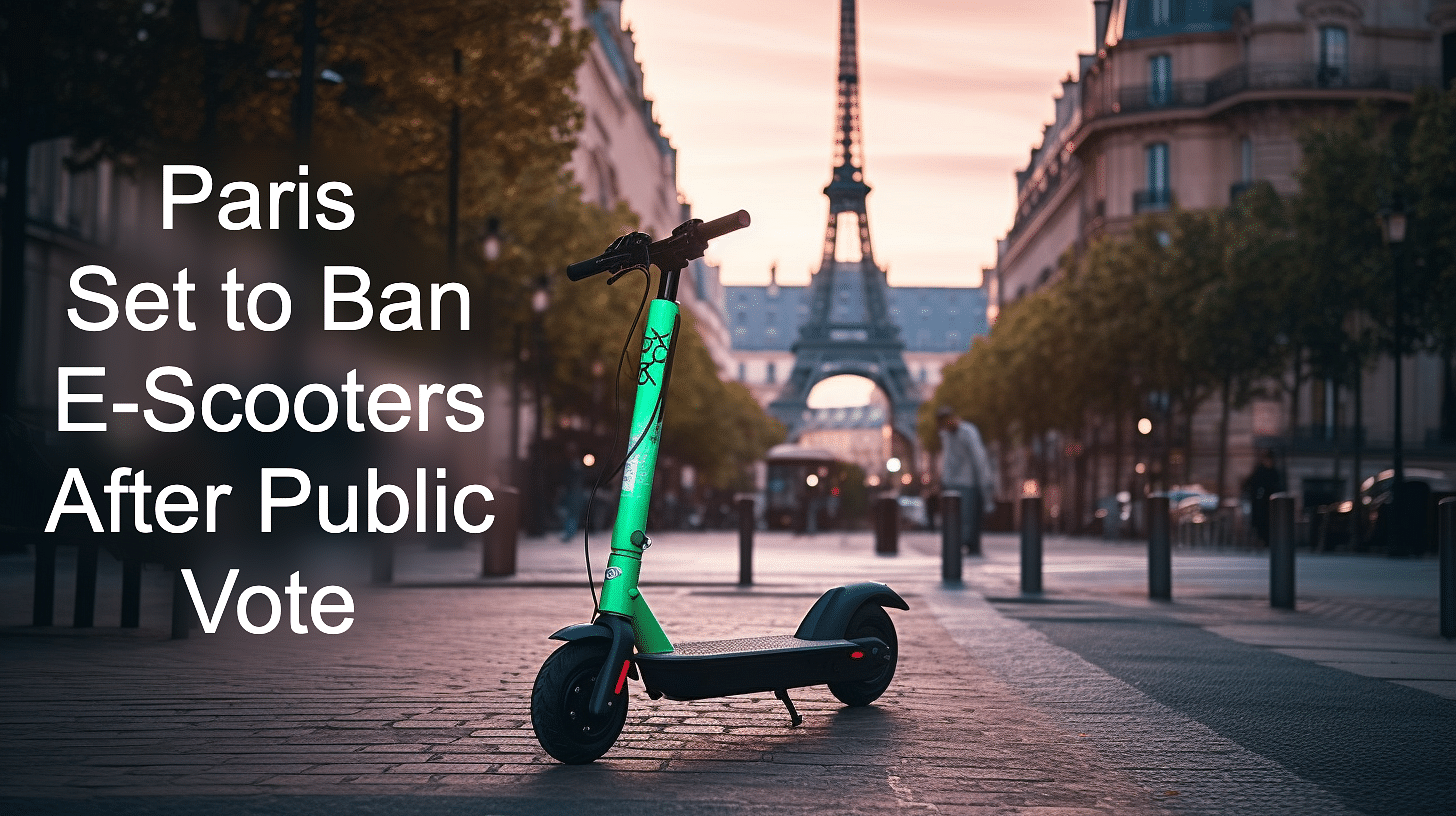E-scooter startups in Paris are now facing uncertain futures after the public voted to ban electric scooters in the city starting September 1st. Despite low voter turnout, Mayor Anne Hidalgo announced her decision to honour the results of the public consultation, which saw 89% of the votes in favour of the ban. E-scooter operators are now scrambling to find a compromise and avoid a potentially crippling blow to their businesses.
The referendum, which was a rare event in the city, saw only 7.46% of registered voters participating. This low turnout has been a point of contention for e-scooter operators like Lime and Dott, who argue that the vote may not accurately represent the views of the entire population. A spokesperson for Lime expressed hope that they could work with Mayor Hidalgo to “adopt sensible regulations instead of a ban on e-scooters” and avoid taking a step backward for Paris.
Meanwhile, a spokesman for Dott pointed out that the referendum was “heavily impacted by very restrictive voting methods,” which led to an extremely low turnout heavily skewed towards older age groups. French Transport Minister Clement Beaune also commented on the situation, calling the vote “a massive democratic flop.”
E-scooters have been operating in Paris since 2018, and after numerous complaints about their disorganised deployment, the city implemented new rules in 2020. The number of e-scooter operators was reduced to three, and they were given a three-year contract with several conditions: scooters’ speeds were to be capped at 20 km/hour, designated parking areas were to be provided, and similar restrictions were imposed as in other cities worldwide. The current contracts are set to expire in September, coinciding with the proposed ban.
These startups have been offering further regulations to address safety concerns, such as ensuring users are over 18, attaching license plates for traffic offender identification, and limiting scooters to one passenger per vehicle. In 2021, France recorded 24 scooter-related deaths, one of which occurred in Paris. Last year, the city also registered 459 accidents involving e-scooters and similar vehicles, with three fatalities.
The ban could have a significant impact on e-scooter startups, potentially forcing them to shut down their operations in Paris or pivot their business models to focus on other cities or alternative transportation options. Furthermore, the decision may also influence other cities to reconsider their policies surrounding e-scooters, putting additional pressure on these startups.
However, not all Parisians are in favour of an outright ban. Some voters have expressed their preference for tighter regulations rather than a complete prohibition. Pierre Waeckerle, a 35-year-old voter, said, “I don’t want scooters to do whatever they want on pavements, but banning them is not the priority.”
As the September deadline approaches, e-scooter startups and their supporters must work to find a compromise that addresses safety concerns and allows their businesses to continue operating in the city. The outcome will have long-lasting implications not just for Paris, but also for the e-scooter industry as a whole.










